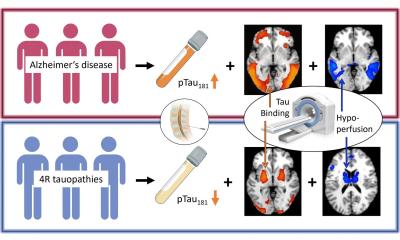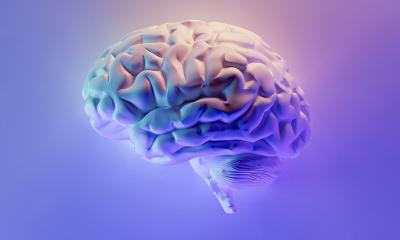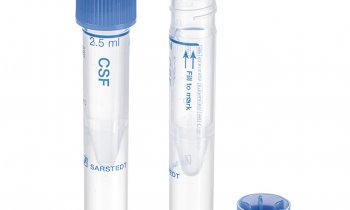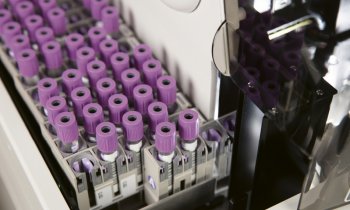
Image source: Unsplash/Lechon Kirb
News • Dementia diagnostics
Lack of sleep might throw off Alzheimer’s test
A preliminary study has found that when young, healthy men were deprived of just one night of sleep, they had higher levels of tau, a biomarker for Alzheimer’s disease, in their blood than when they had a full, uninterrupted night of rest.
The study is published in Neurology, the medical journal of the American Academy of Neurology. Tau is a protein found in neurons that can form into tangles. These accumulate in the brains of people with Alzheimer’s disease. It can start to develop in the brain decades before symptoms of the disease appear. Previous studies of older adults have suggested that sleep deprivation can increase the level of tau in the cerebral spinal fluid. Trauma to the head can also increase circulating concentrations of tau in blood.
Recommended article

Video • PET precision brain imaging
‘Tau’ protein far more predictive for Alzheimer's damage than amyloid
Brain imaging of pathological tau-protein “tangles” reliably predicts the location of future brain atrophy in Alzheimer’s patients a year or more in advance, according to a new study by scientists at the UC San Francisco Memory and Aging Center. In contrast, the location of amyloid “plaques,” which have been the focus of Alzheimer’s research and drug development for decades, was found…
“Many of us experience sleep deprivation at some point in our lives due to jet lag, pulling an all-nighter to complete a project, or even doing shift work, working overnights or inconsistent hours,” said study author Jonathan Cedernaes, MD, PhD, from Uppsala University in Sweden. “Our exploratory study shows that even in young, healthy individuals, missing one night of sleep increases the level of tau in blood suggesting that over time, such sleep deprivation could possibly have detrimental effects.” The study involved 15 healthy, normal-weight men with an average age of 22. They all reported regularly getting seven to nine hours of quality sleep per night.
There were two phases to the study. For each phase, the men were observed under a strict meal and activity schedule in a sleep clinic for two days and nights. Blood samples were taken in the evening and again in the morning. For one phase, participants were allowed to get a good night of sleep both nights. For the other phase, participants were allowed to get a good night of sleep the first night followed by a second night of sleep deprivation. During sleep deprivation, lights were kept on while participants sat up in bed playing games, watching movies or talking. Researchers found that the men had an average 17-percent increase in tau levels in their blood after a night of sleep deprivation compared to an average 2-percent increase in tau levels after a good night of sleep.
It’s important to note that while higher levels of tau in the brain are not good, in the context of sleep loss we do not know what higher levels of tau in blood represent
Jonathan Cedernaes
Researchers also looked at four other biomarkers associated with Alzheimer’s but there were no changes in levels between a good night of sleep and one night of no sleep. “It’s important to note that while higher levels of tau in the brain are not good, in the context of sleep loss we do not know what higher levels of tau in blood represent” said Cedernaes. “When neurons are active, production of tau in the brain is increased. Higher levels in the blood may reflect that these tau proteins are being cleared from the brain or they may reflect elevated tau levels in the brain. Future studies are needed to investigate this further, as well as to determine how long these changes in tau last, and to determine whether changes in tau in blood reflects a mechanism by which recurrent exposure to restricted, disrupted or irregular sleep may increase the risk of dementia. Such studies could provide key insight into whether interventions targeting sleep should begin at an early age to reduce a person’s risk of developing dementia or Alzheimer’s disease.”
The main limitation of the study was its small size. In addition, it looked only at healthy young men, so the results may not be the same for women or older people.
Source: American Academy of Neurology
09.01.2020











